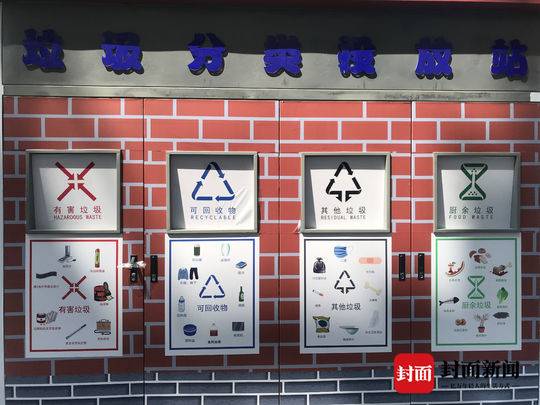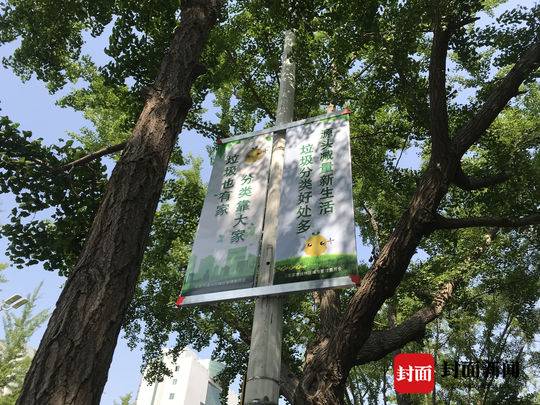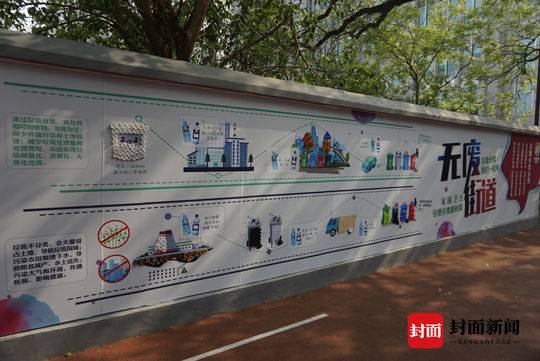[Editor’s note:] In May 2020, Dr. Zhou Jinfeng, the Secretary-General of China Biodiversity Conservation and Green Development Foundation (CBCGDF) accepted an interview with The Cover News and commented on the situation after the "Beijing Municipal Waste Sorting Management Regulations" was officially implemented. Regarding the question of how to better promote garbage classification in Beijing, Dr. Zhou believes that it is necessary to raise public awareness, ensure extensive public participation, strict supervision, and implement reward and punishment mechanisms. At the same time, it is important to promote the recycling of old clothes and books.
For example, textbooks and children's books that are printed more and more exquisite, if they can be recyclable in a large amount, instead of turning them into pulp to make paper after recycling, it will bring about a very considerable waste reduction, and the positive impact on the environment and ecology will also be huge.
Beijing Starts Waste Classification | Experts: Fine is Not a Method, but a Penalty Mechanism is Required
“Where should these go?” asked by a young man,
“Is that takeout? Put the leftover in ‘Food waste’ ,and the rest goes to ‘Others,’ thanks a lot!”
This was The Cover News reporter saw at a garbage classification point in Dongzhongbu Hutong, Dongcheng District, Beijing, on May 1.
Following the garbage classification in Shanghai, Beijing formally implemented the "Regulations on the Management of Municipal Solid Waste" (hereinafter referred to as the "Regulations") on May 1.
How can we improve resident cooperation? How does one keep it going? Covered News recently interviewed Feng Jianguo, former director of the Resource Zoning Division of the Beijing Rural Economic Research Center and Secretary-General of the China Biodiversity Conservation and Green Development Foundation (CBCGDF). They believe that the first step is to strengthen publicity and deepen the understanding of residents and enterprises, while strict supervision and implementation of penalties are also needed.
Residents willing to corporate
Recently, The Covered News reporter visited the Dongcheng District, Dongzhongbu Hutong, and Tongzhou District, Zhongshan Street, Building 52, to observe the residents on the waste sorting situation.
The reporter saw two bins labeled “Food waste” and “Others” in the Dongzongbu Hutong right in the public toilet. According to Ms.Yan, she has been helping the residents to classify the garbage. “So far, everyone is pretty nice about this. Every time someone wants to throw away their garbage, I will drop by to give people a little knowledge about classification."
On April 28, in No. 52 Zhongshan Street, the reporter met Ma Jincheng, a waste sorting instructor. He has been on duty since April 1, distributing pamphlets to residents and guiding them to sort their waste, "At first, many residents were not used to it, and some of them just threw their garbage randomly into the bins. But after a month, three out of five people chose to send their garbage in the right place. For those who don't, with my reminders and help, they always end up cooperating."
As for how to cooperate better with residents, Feng shared his view with us. Firstly, Beijing held a conference on April 24 to promote the separation of household waste and property management, "It requires that waste separation and property companies be linked. Only when they are truly responsible can they effectively promote waste sorting." Secondly, there is a need for continuous publicity, "The more publicity and mobilization, the more operating costs will be saved subsequently." Third, the Beijing Municipal Bureau of Law Enforcement will carry out a three-month intensive enforcement campaign from May 1 to July 31, focusing on investigating and dealing with mixed household waste.
Dr.Zhou also believes that publicity plays an essential part in rising residential awareness. Strict supervision and enforcement are also needed. “Besides, we need more public participation, for the staff is limited.”
However, both Feng Jianguo and Dr.Zhou Jinfeng stated that even if the preparations are complete, waste sorting will still face some challenges when it comes to concrete implementation, "We need to understand that it takes time for residents to change their lifestyles."
Fine is not for the sake of fine.
The reporter noted that many provisions in the Regulations mentioned fines, such as Article 67, stipulates that if individuals violate Article 33 refused to change when he does it again, he shall be charged with a fine between 50~200.
Dr.Zhou approves this method. “Beijing is charging a bigger fine than Shanghai. This is to track each person’s responsibility, helping them to form a decent habit. While regulating oneself, more people would be positively influenced. If the enforcement is on point, the Regulation should work out fine.”
Feng Jianguo believes that fine is not for the money, but necessary regardless. “In some countries, garbage collection is paid. For example, special garbage bags need to be purchased, and the cost of garbage disposal is included in the bag. Some countries also impose penalties on individuals and companies who do not put out their garbage following the rules. These countries have also gone through the process of going from 'messy' to 'orderly' and ‘unconscious’ to ‘conscious’ in terms of waste management, such as Germany. Also, some countries promote mutual monitoring of neighbors. We all care about our names, being told once or twice, one should become ‘self-conscious.’ "
Feng pointed out, "For those who are reluctant to do so, punishment is a must. However, financial penalties alone won't work because the cost of enforcement is too great, and it involves the question of 'who supervises,' especially in residential areas where one-on-one supervision is impossible. It's worth discussing on how to operate this system."
Increase the recycling rate of waste
In Tongzhou District, No. 52 Zhongshan Street, the reporter saw the garbage sorting station fixed with plates is divided into four areas, for hazardous waste, recyclables, other garbage, and food waste. Each kind of garbage drop corresponds with a description plate. For example, recyclables description plate marked with wine bottles, books, cans, clothes, and pants.
For improving the utilization rate of recyclables, Zhou Jinfeng pointed out that the recycling of old clothes and books already has a mature model. "The waste reduction it brings is very considerable, and the positive impact on the environment and ecology is huge. For example, we can push them into recyclable uses, rather directly turn them into pulp paper. Companies and charity organizations engaged in this kind of work need to be supported more."
"The finer the waste is sorted, the higher the recycling rate will be. And increasing the rate is the original intent of waste separation." Feng said, "Especially the in-place transform rate. For example, the plastic foam that wraps electrical appliances, the cost of transporting it would be sky-high, fort the wind would blow it all over the sky. Whether these recyclables-resource-utilization- processing points can have a reasonable layout around the city, is worth discussing."



(Photo credit: The Cover News)
Original Chinese article:
http://www.cbcgdf.org/NewsShow/4856/13201.html
By / Zhang Daqian Modified / Maggie
https://www.paypal.me/CBCGDFChina
http://www.cbcgdf.org/English/ConfirmDonaTion/0.html


(Please indicate "I read CBCGDF" in the payment notes, thank you!)
